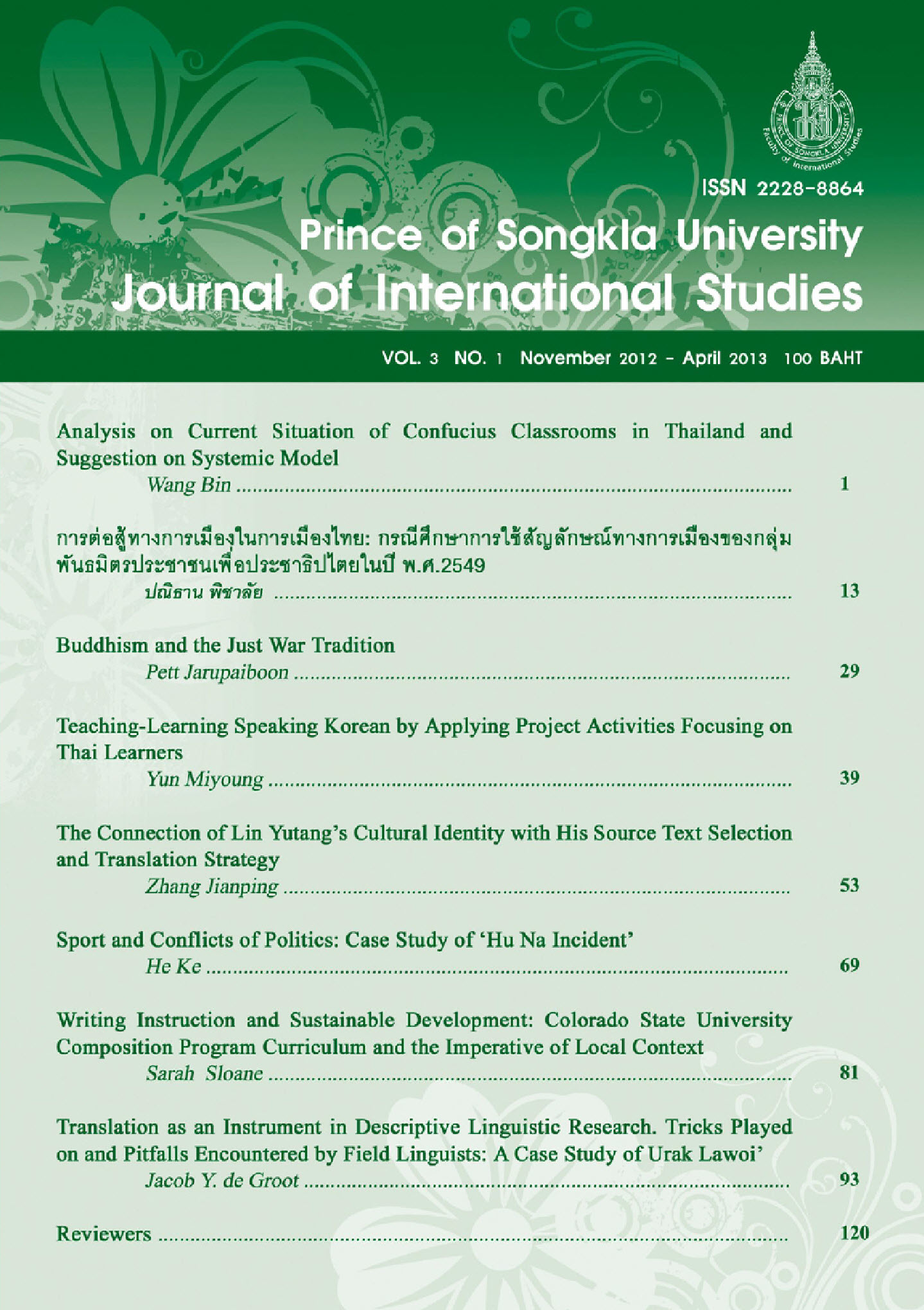Sport and Conflicts of Politics: Case Study of 'Hu Na Incident'
Main Article Content
Abstract
Sport, as a form of state soft power, was deliberately employed by political leaders to fulfill subtle and seemingly impossible diplomatic tasks at a certain critical moment. Nowadays sport still has an indissoluble bond with politics. On the one hand, sport is expected to be a means of developing foreign relations or carrying out political struggle; on the other hand, sport cannot get rid of the influence of states, blocs and various political forces. Taking 'Hu Na Incident' as a case study, this paper describes the incident occurred in 1982-1983 from the perspective of history; analyzes how this sport event became a diplomatic dispute between China and U.S.; reveals the complex link between 'Hu Na Incident' and Sino-U. S. relations; tries to provide a reference to today's sports diplomacy strategy.
Article Details
Statements and opinions expressed in articles herein are those of the authors and do not necessarily reflect the position of the editors or publisher.
Article, information, text, image, etc. which are published in Journal of International Studies, belong to Journal of International Studies. If anybody or any organization would like to use part or whole of them, they must receive written permission from Journal of International Studies before usage.
References
Bai, M. (2009). Extraordinary life. New West. pp.42-44.
Chinese Communist Party Literature Research Center, (1998). Deng Xiaoping's ideological chronicle. Beijing, China: Central Literature Publishing House.
Deborah E. A. (1981). The Forty Year Crisis: A Legislative History of the *Refugee Act of 1980. The San Diego Law Review, 7329-89.
George, F. (2009) Obama's foreign policy after year one. Retrieved February 13, 2012, from http://www.realclearworld.com/articles/2009/12/15/obamas_foreign policy_after_year_one.html
Gong, L. (1996). Shock between peak and valley: Sino-U.S. relations since 1979, Beijing, China: Chinese Youth Publishing House.
Hu, N. (2009). All About The Willing Be Professional. Tennis, 116-117.
Liu, L.D. (1995). The trajectory of Sino-U.S. relations, Beijing, China: Current Affairs Press.
Oiao, Y.C, & Xu, D.Y. (2009). On the politicizing tendency of sports -Taking the modern Olympic Games as an example. Journal of physical education, 7, 1-8.
Roche, M. (2000). Mega-events and modernity. London: Routledge.
Shen, J.Q. (2009). I forgived Hu Na. Tennis, 113-115. Tao, W.Z.?1999. The history of Sino-US relations (1972-2000), Shanghai, China: Shanghai People's Publishing House. Wikipedia. (n.d.) Right of asylum. Retrieved May 13, 2012, from
http://en.wikipedia.org/wiki/Political_asylum
Xin, X. (2006). Modernizing China in the Olympic spotlight: China's national identity and the 2008 Beijing Olympiad. In John Horne & Wolfram Manzenreiter (eds.), Sports Mega-Events: Social Scientific Analyses of a Global Phenomenon (pp. 90-107). Oxford: Blackwell Publishing House.


